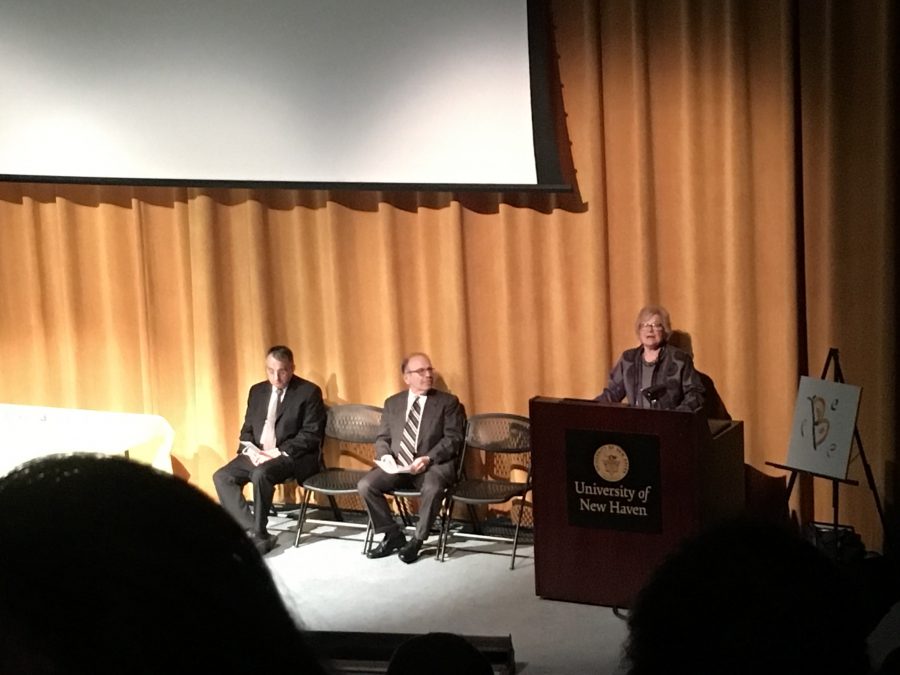From the Associated Press.
NEWPORT BEACH, Calif. – Marcia Kear’s three daughters were married at St. James Anglican Church. Her mother’s funeral was there. She said she found the Holy Spirit there.
But she may have to give up the bayside sanctuary, where sunlight filters through watery blue stained-glass windows and glints off the flawless copper pipes of an organ purchased with parishioners’ tithes.
Kear is among theologically conservative breakaway Episcopalians fighting over parish property in a long-running rift over how churchgoers should interpret what the Bible says about gay relationships and many other issues.
St. James Anglican, in the Diocese of Los Angeles, is one of several dozen individual parishes and four dioceses nationwide that voted to split from the national church after the 2003 consecration of the first openly gay Episcopal bishop in New Hampshire.
“It’s not just about the building, it’s about the church,” said Kear, 70, who participates in group prayers for the property even while she says the congregation could continue without it.
The congregation may have to do just that. State courts have sided with the Los Angeles diocese throughout the five-year legal case, most recently in January. St. James has filed a petition with the U.S. Supreme Court in hopes that it might take up what has so far been a losing battle. St. James expects to know next month whether the nation’s highest court will take the case.
Two other seceding parishes — All Saints Church in Long Beach and St. David’s Church in North Hollywood — are parties in the lawsuit. A high court decision could also affect the Fresno-based Diocese of San Joaquin, one of the dioceses that voted to split off and is now involved in a complex property dispute with the national church.
Both sides make similar claims to the individual properties beyond their legal positions. Each has strong emotional and spiritual ties to the parishes, and views its interpretation of Scripture as the right one. Traditional Episcopalians believe that the Bible bars gay relationships; liberal Episcopalians emphasize social justice teachings of Scripture.
The Episcopal Church has argued that its rules bar anyone from walking away with denomination property, which often includes large endowments and land worth millions of dollars. Theological conservatives who want to separate say they have spent years, even decades, spending money to maintain and improve the buildings.
The 2-million-member denomination also includes many parishioners who disagree on the issues, but don’t see the rift as a reason to leave. Los Angeles Bishop Jon Bruno issued a letter to the diocese’s parishioners urging reconciliation.
“The Episcopal Church continues its long tradition of welcoming among its members a diversity of opinion, including loyal dissent. Our church remains a large tent expansive enough to include many views and voices while united in common prayer,” he wrote. “I ask each of us to keep working for reconciliation and renewal within this diocese.”
But reconciliation is a long shot.
Committing to leave the Episcopal Church five years ago and risking litigation was a somber decision for the St. James parish, especially because ties to the buildings run deep.
Kear remembers an expansion project about eight years ago when parishioners wrote prayers on scraps of paper and set them in the cement of the new sanctuary’s foundation.
There was “really a feeling (we were) building the new building,” Kear said.
Chad Sutton, a member of St. James’ lay leadership committee, said it’s particularly painful to hand the property to leaders with such different theological views.
“The prayers that have gone on at that altar — it almost gives you goosebumps,” Sutton said. “The saints that have gone before us and surrendered their lives, confessed their sins there — that has some significance.”
St. James has aligned with the Anglican Church of North America, a network of seceding Episcopal parishes and other congregations that was formed by theological conservatives as a rival to the Episcopal Church. At recent Sunday services in Newport Beach, parishioners voiced prayers for “our legal situation.”
Beyond awaiting word from the U.S. Supreme Court, there is no timeline for when the separationist parishes might hand over the grounds.
Sutton hopes, at least, it can wait a few months.
He and his wife are expecting a baby, and he said he knows exactly where they would like to have the child christened.




